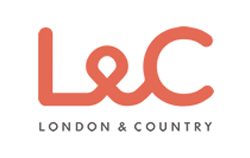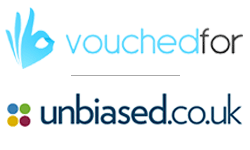Money Saving
If you find a broken link in this list, please report it to the webmaster.
Getting the right mortgage or remortgage deal can save you £100s each month. But it can be a nightmare knowing how to get it spot on.
To help you navigate through the mortgage maze, here's our guide outlining step-by-step how you can find the best possible mortgage deal for you.
STOP PRESS, 4 AUG The Bank of England (BoE) today cut base rate from 0.5% to a new historic low of 0.25%. Fixed-rate holders won’t see a change but BoE base rate trackers should fall. If you're on your lender's standard variable rate or a tracker rate discounted to this, you're at their whim. Seeking a new mortgage? A lower base rate could mean cheaper deals but the BoE thinks there's little room for big rate drops. See our full lender by lender update.
Step 1: Know what type of mortgage you want
Now you're ready to get a mortgage, you need to go about it the right way. There are several things you need to do before you're ready to check out deals:

-
Have you decided whether you want a repayment or interest-only mortgage?
If you pick interest-only, you NEED a separate plan to pay off your debt, as your payments only cover the cost of the interest. A repayment mortgage, while it costs more each month, pays off the original debt too.
Unless you have a compelling reason, repayment is the way forward. It's also the one you're most likely to get as some lenders just won't offer interest-only deals. Those that do will want evidence of a credible repayment plan and might limit the amount you can borrow.
-
Decide if you're going for a fixed or variable rate mortgage?
The most important thing to remember is with a fixed rate, you have the surety of knowing EXACTLY what your mortgage repayments will be for that time.
In years past, variable rates were often significantly cheaper but right now the pendulum has swung more towards fixed deals, which are at their cheapest ever. But always pick the right deal for you - our What type of mortgage should I get? guide has more information on how to choose.
-
Make sure you've got enough cash for any associated fees
It's not just about the rate when picking a mortgage - a whole raft of fees could come as part of the package - stamp duty, solicitors' fees, valuation/survey costs, mortgage fees and more. Our How much will buying a home cost? guide will give you the full information on what you'll need to pay and when.
-
Put as much towards your deposit/equity as you can...especially if you're close to an LTV-rate boundary
This may seem contrary to the point above, but mortgage rates drop in steps, known as loan-to-value (LTV) bands. So if you've a 9.75% deposit/equity, it's worth trying to get that up to 10% as you'll get a pick of lower interest rates.
If you've done all this, you're ready to follow the steps below to find the best mortgage for you. Remember that even if you've got an agreement in principle with a lender, you don't have to stick with it - especially if it is no longer offering the best deal.
Step 2: Get a rough idea of what you can get
Whether you're going for a fixed or variable mortgage, you need to start looking at what rates you can get. This will depend on the size of your deposit and the value of the property.
But, in starting your search for the best deal, the first thing you need to know is:
"NEVER just go to your bank for a cheap deal."
Your existing bank will only give you its tiny range of deals, not the array of alternatives, meaning it's highly unlikely you'll stumble across the best one for you.
Only check what it's offering as a starting point. Then use our Mortgage Best Buys tool to check the whole market.
Comparing mortgages can be confusing. There are over 6,000 mortgage products, so you need to know how to search through our comparison site to find the best deals for you. Click on the button below for a full how-to for mastering MSE's Mortgage Best Buys.
Need to know how to find the best deals for you?
Step 3: Talk to a mortgage broker
Once you've benchmarked a good rate from using our Mortgage Best Buys, see if a broker can beat it.

They scour the market to find you a good mortgage deal. By using one, you swiftly cover a huge slew of lenders, and get added clout with them to ease your acceptance as well as an extra layer of protection if things go wrong.
Brokers will also be able to advise you on Help to Buy mortgages and other Government mortgage schemes(NewBuy, shared ownership and more) if you're eligible - tell your broker upfront if that's what you're looking for.
Brokers are also worth their weight in gold, because they know key details about lenders' criteria. So they would know if the lender you're thinking of doesn't lend on properties above shops, or in council blocks - so they'd be able to recommend a different lender who does.
But, the key is to find a broker you're comfortable with. The estate agents you meet when house hunting will often recommend brokers. They may even work from the same office. But you are NOT tied to using these, even if you buy via that estate agent.
Ask friends who've moved for recommendations - many local brokers are fantastic. The aim's to find you the best broker for the lowest possible price.
But not all brokers are the same. Some are limited in what they can offer you, so there are three crucial questions to ask.
Can you get me a mortgage from any UK lender, right now?
This finds out if your broker can source you ANY UK mortgage. Not all can so it's important to know which you're dealing with:
-
"NO." Some brokers are tied to one lender or operate off a small panel of lenders, so they search fewer deals. This makes it simpler and cheaper for them to operate.
-
"We check all products available to brokers." The key point to note here is the last phrase - available to brokers. This used to be called 'whole-of-market'.
Many of these brokers will exclude lenders and products which are only offered directly to the public, mainly as they won't receive a commission. On top, they may not be able to submit an application on your behalf.
-
"We check all lenders." Some brokers do check lenders' direct-only deals too. However, they are more likely to charge a fee. In reality, it's unlikely a broker could guarantee you access to EVERY mortgage, as exclusive deals can be arranged between lenders and brokers (and clubs that brokers can join).
Just be clear on what your broker is offering. Weigh up the need to check every deal, your willingness to do some legwork yourself, and if you're happy paying a broker fee.
Once you've found a broker you're happy with, you need to ask them the next questions to find out if they're the best broker for you.
Do you charge a fee?
This tells you how the broker makes their money from your mortgage deal. Brokers have two possible sources of income:
-
Commission
Almost all lenders pay brokers what’s called a ‘procuration fee’ of roughly 0.35% of the transaction (£350 per £100,000). This is a commission based on your loan size – and doesn’t affect the cost of your mortgage.
They are obliged to tell you the exact amount they'll be paid before you apply. You can find this info on the Key Facts illustration, which they must provide before you apply.
-
Fees
Brokers may also charge you a fee directly. This might be on top of the commission, or instead of it (ie, they charge a fee and refund you the commission).
If they offer you the choice between fee or commission, then they can call themselves 'independent'. If they don't, they can't - which is a bit confusing.
No reputable broker should charge more than around 1% of the mortgage value, even for customers with a poor credit rating. If yours charges more, walk away.
Fees can be charged at any point in the process, providing you're told about them at the outset. Yet avoid using any broker who charges you big fees before completion. If the purchase falls through, you'll probably still have to pay.
Quick question
Is it worth paying a fee?
Are you qualified?
You need to find out whether a broker is qualified to advise you. Make sure you're getting advice from a qualified adviser (the most recognised qualification is called CeMAP). Your broker should assess your needs and eligibility before recommending the most suitable product for you. This route also offers the most protection for you as a consumer.
If the advice turns out to be wrong, the Financial Ombudsman will be able to investigate any wrongdoing. If you chose a product from an information-only service, you'd have no comeback if you made the wrong choice.
Best Buys: Finding the top UK mortgage brokers
Now you know what you're looking for, as we can't review every mortgage broker in the UK, we've concentrated on some of the big ones that have nationwide scope, plus ways to find smaller brokers. Similarly, if you have any doubts about a broker, find a different one - there's nothing wrong with talking to several before you settle on one.
London & Country Mortgages*
FEES-FREE, SEARCHES ALL BUT DIRECT DEALS

Specialist phone broker London & Country* never charges a fee, and will check the the vast majority of deals available to brokers, but won't check direct only deals, so you'll need to check the remaining ones yourself.
- How do I speak to it? Phone only.
- What lenders will it check? All standard deals available through brokers, but misses some biggies.
- Cost: FREE.
Full MSE review of London & Country
Which? Mortgage Advisers*
PAY £499 AND IT'LL SEARCH EVERY UK LENDER

Consumer organisation Which? has set up the Which? Mortgage Advisers* service, which offers a phone-based broker service for £499. It guarantees to check all lenders' deals, even if they're not normally available through brokers - so this includes perennially cheaper providers such as First Direct, HSBC and Tesco.
- How do I speak to it? Phone only.
- What lenders will it check? Every UK lender.
- Cost: £499 (£299 paid on application if you apply through Which? Mortgage Advisers, then £200 on completion).
Full MSE review of Which? Mortgage Advisers
Find a good local mortgage broker
FACE-TO-FACE ADVICE

If you prefer face-to-face advice , try to find a local broker that offers it fees-free; there should be quite a few. Websites like Unbiased.co.uk* or VouchedFor* both list brokers. You could ask a friend or even use the phone book - but it's crucial you know what you're getting.
- How do I speak to it? Face-to-face, usually!
- What lenders will it check? It depends on the one you find.
- Cost: Varies massively, always check.
Full MSE guide to picking a local broker
Quick questions
I've had credit problems in the past - do I need to go to a specialist broker?
Am I allowed to speak to more than one broker?
I've heard some brokers do cashback - how do I get this?
Find the best buy mortgages
If you're ready to get a mortgage, tell our Mortgage Best Buys tool what you want, and it'll speedily find the top deals for you.
Step 4: (Double) check lenders that brokers miss
If you used our Mortgage Best Buys to benchmark a rate before you went to a broker, and it couldn't beat your rate, then you've probably already done this.

And if your broker says it tells you about all deals on the market (not just the ones they can transact for you), this part should already have been done. It may be worth double-checking, but it's likely you've already found the best deal for you.
If you used a standard broker, it may still miss some deals as sadly, some lenders have retreated from the broker market to cut costs. Some simply don't allow brokers to access any of their deals; others reserve some deals for direct sales only.
For belt and braces, compare a broker's best result to the three types of mortgages it may not have included (if you haven't already done it using our Mortgage Best Buys):
-
Lenders that don't operate through brokers
Yorkshire Bank and First Direct don't offer their deals through brokers. Plus, HSBC only offer their deals through two broker networks (Countrywide and London & Country), so if you're not with a broker who's with those networks, you'll need to check HSBC's deals yourself.
And Yorkshire Building Society and Co-op/Britannia don't also don't pay brokers a fee on their main brands (though do deal with them through their broker brands, Accord and Platform). Brokers who say they search the whole market should include them in a comparison but, they don't have to offer to transact for you.
-
Lenders that don't offer all their deals through brokers
You'll really need to do some legwork for these. A few lenders, including Nationwide and Halifax, now put some deals through brokers and offer some only direct. Just to show there's nothing like keeping things simple!
Tesco Bank is another that offers most of its deals through brokers - with the exception of its 95% mortgage deals that are only available direct.
A recent trend is that the direct deals can be much more competitive (but not always). Usefully, MSE's Mortgage Best Buys tool finds the best deals for you, and tells you if they're available through brokers or only direct.
-
Exclusive deals from other brokers
In the final category are the deals which are available exclusively through certain broker networks, as they sometimes negotiate their own deals with lenders. Unfortunately, we can't cover all of these in our Best Buys tool, but they're not a significant proportion of the market. For full belt and braces, you could try a few different brokers.
To properly compare deals, find the best deal that a broker can offer you, and the best deal you can find using our Mortgage Best Buys, then use our Compare Two Mortgages or Compare Fixed-Rate Mortgages calculators to see what each will cost you.
Don't use the APR to compare - mortgage APR confusion
The best comparison is to use the rate you'll pay for the incentive period in the comparison - and compare over the length of time you think you'll have the mortgage. DON'T compare one mortgage's APR with another.
All lenders have to tell you their APR - the effective averaged annual interest rate if you held your mortgage for the entire term (normally 25 years). This is rather annoying, as it's a rate in most cases you'll never have to pay, so it's meaningless.
If you had a fixed rate at 3.49% for two years, and then the rate it reverted to afterwards was 4.74%, the APR would be around 4.3%.
So why do we say it's mostly meaningless?
- You never pay 4.3%. It's an averaged rate over the entire term
- You're likely to remortgage long before the term ends
- The rate it reverts to (the standard variable rate) is likely to move anyway
What you really need to focus on is the initial discount/fixed rate, the fees and the rate it goes to once your deal has ended.
Step 5: Check your mortgage paperwork
You could start a library out of the amount of paperwork you get sent when you take out a mortgage or remortgage. The main documents you need to be aware of are:
Key Facts Illustration

The Key Facts Illustration does what it says on the tin. It gives you the Key Facts about the mortgage product, not all of them, but all the main ones. You should be given one of these before you make an application and you should check through carefully.
Key Facts illustration checklist
Why do you need to check and keep the illustration?
The mortgage offer
Once you've successfully applied for a mortgage, you'll be sent a mortgage offer by the lender. This gives ALL the facts about the mortgage and the conditions on the loan that you are agreeing to.
It's a bit more reading, but it's massively important you read through it and check every detail is 100% accurate. If your name is not spelt correctly or the loan figure is wrong, this could stop the mortgage at the very last minute, resulting in delays, additional expense, jeopardising the purchase and even more scarily, losing the mortgage offer completely.
You also need to be sure there's nothing unexpected in it, particularly if it contradicts your Key Facts illustration. Pay particular close attention to fees, early repayment charges and the conditions you need to meet to complete (as it's your solicitor's job to check you've met these before the money can be drawn down).
Your broker should also check the mortgage offer, but don’t rely on that. If you were to disagree on a point later down the line, it could be very difficult to win the argument if you’ve signed the document accepting the conditions.
Scan it, file it, keep it!
Step 6: Watch out for the hard sell
Some lenders and brokers try to make more money elsewhere in the mortgage process. So be prepared for the hard sell on these products.
Mortgage payment protection insurance (MPPI)
 Sometimes called accident, sickness and unemployment insurance (ASU), MPPI is supposed to cover your payments if you have an accident, become ill, or you're made redundant.
Sometimes called accident, sickness and unemployment insurance (ASU), MPPI is supposed to cover your payments if you have an accident, become ill, or you're made redundant.
You can get limited help from the Government in these circumstances but, at best, it will only cover your interest. So it's sensible to consider, before you take out a mortgage, how you would manage to meet your repayments if these events happened.
MPPI isn't a bad policy but it can be quite pricey and has been mis-sold in the past to people who couldn't actually claim on it. This can happen because the insurer doesn't carry out any checks when you first apply, only when you go to make a claim.
Be extra careful if you are self-employed, have any reason to suspect you might be made redundant or have any existing medical conditions.
If you do decide to take out an MPPI policy, check carefully:
- That it will pay out if you claim
- When it will pay (you may have to wait several weeks before the policy kicks in)
- How much it'll pay and for how long (it usually only covers your repayments for 12 months)
Ensure you understand all the terms and conditions before signing on the dotted line.
Buying MPPI from your mortgage broker. Be careful when buying from your mortgage broker here. It may not be able to get you the best-priced policy. It's common for a broker to offer whole of market mortgage advice, but then be tied to a single, or small panel of insurers.
There's no harm in getting a quote from your broker for MPPI, but make sure that you compare with other policies to see if it's a good deal.
Read more in our Mortgage Payment Protection Insurance guide.
Bundled buildings / contents insurance
All lenders will insist you take out buildings insurance. But be very suspicious of deals which insist you buy your buildings insurance through your lender. While the amount quoted may seem reasonable in the first year, you're then trapped into accepting whatever premium increases they foist on you in subsequent years, for as long as the mortgage lasts.
Some lenders charge around £30 if you decline to take their insurance. If you go elsewhere for your home cover, some seriously cheap deals are possible. By using cashback sites, some people have even been PAID to take out insurance. See our Home Insurance guide.
Life cover from your mortgage seller
Would you ask the man who sold you a computer to be your fashion stylist? No, so don't assume just because someone sold you one financial product, they'll automatically get you a good deal on extra bits such as life cover or other insurance.
Buying your first home is probably the first time you've thought about life insurance, but don't rush in and grab the first one offered to you. In some cases you can save 50% on the life cover sold by your lender or broker.
For a full guide on how to find the cheapest cover, see the Life Insurance guide.
Want to complain about your mortgage provider?
If your mortgage provider's given you wrong information, or its service has been atrocious, you don't have to suffer in silence. It's always worth trying to call your lender first to see if it can sort the problem, but if not...